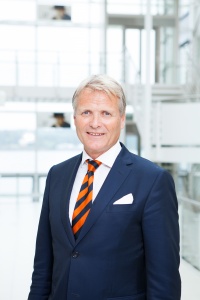Turning our backs to the future could cost many new jobs

Espen Høiby, CEO of OSM Aviation, has called for a more visionary debate on the future of international aviation. “Turning our backs to the future with many prejudiced attitudes could cost us the opportunities to create new jobs,” he wrote recently in Oslo daily Dagbladet.
He continued: “There’s no basis for claiming that the aviation industry is forgetting its social responsibility as a result of increased globalisation and competition. Nor is it the case that new employer models will be adopted at the expense of airline safety and service.”
Høiby thereby contradicted a number of Nordic parliamentarians and union leaders who were behind an earlier article which alleged that developments in international aviation are characterised by a lack of social responsibility and of respect for employee rights.
With its head office in Norway, OSM Aviation is a newcomer in the international aviation sector and a specialist in the employment, training and administration of cabin crew and pilots. Three years after starting operations, it has 2 700 permanent employees in 14 countries. This workforce is set to double within a year. OSM Aviation currently has nine international airlines as clients, with Norwegian as the largest.
“Requirements for certificates, training and expertise are the same as when cabin crew and pilots were employed directly by the airlines,” Høiby wrote. “We operate in accordance with international and national rules, including those which relate to safety. I agree with the parliamentarians and union leaders warning against irresponsible players who challenge fundamental rules in the labour market. But their opposition to change and innovation driven by responsible companies is difficult to understand.”
OSM Aviation has collective agreements on pay and working conditions in a number of the countries where it has a presence, and is negotiating more such deals. The company recently entered into a collaboration agreement with the International Transport Workers’ Federation (ITF). This recognises the right of the workforce to organise and makes provision for representation and collective bargaining. That safeguards professional and orderly working conditions in international aviation.
When the agreement was made public, Stephen Cotton, general secretary of the ITF, commented: “OSM Aviation has a business model which is serious and responsible, and which builds on permanent employment and orderly arrangements for pay and working conditions.”
The aviation industry is international by nature and competition is tough, but the sector is conservative and has a great need for innovative thinking. Both the willingness and the ability to change are required, and good collaboration between governments, unions and the industry is then crucial for success.

